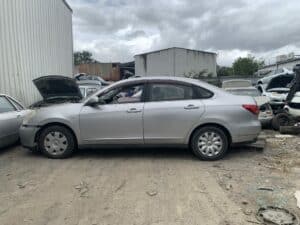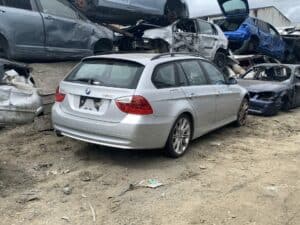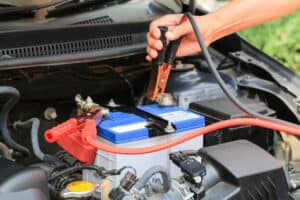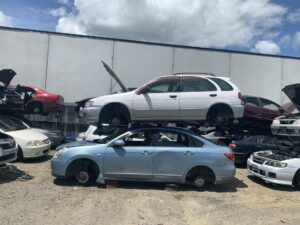Covering the topic of what happens to the toxic substance in a wrecked car is a bit more complicated than described here. This article only points out a few of those and what those are. Read through to understand how recycling is managed at Mega Wreckers.
In this article we will cover
Chemicals
Multiple chemicals in vehicles can trigger health and environmental issues, such as known toxicity, preservice, and accumulation in humans and the environment. Hazards of prolonged exposure to these toxic chemicals have increased throughout the earth. The chemicals of immediate concern to the Environmental study include:
Bromine
Bromine flame retardants are mixed with plastic to make it fire resistant, but they are integrated into the environment through the vehicle. Heat and sunlight exposed to cars can accelerate the disintegration of these substances and probably maximize their toxic nature. Some BFRs induce these types of diseases in humans like thyroid problems, learning and memory impairment, reduced fertility, and mood changes.
Chlorine
Polyvinyl chloride is a majorly used plastic that is harmful to the environment and biological health during its life cycle. PVC includes substances known as phthalates, some of which are harmful to the human race. It is related to reduced fertility, premature deliveries, liver problems, and problems related to the testes, thyroid, ovaries, kidneys, and blood. In research, it is found that phthalates can pass from mothers to babies through the placenta.
Lead
Lead is rarely used as an addition to vehicle plastics. Exposure to lead can trigger various health problems, including brain damage and kidneys, blood, nerves, and reproductive system problems. It also initiates learning problems and mood changes.
Related services
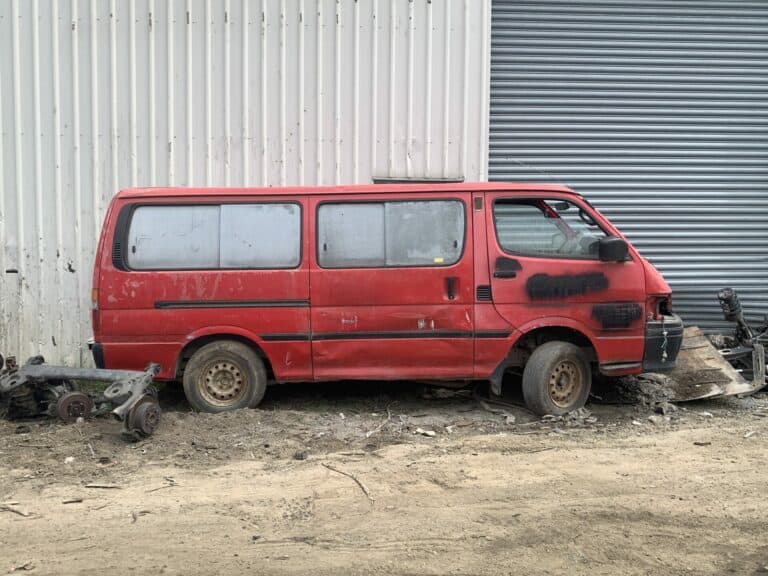
Heavy metals
Other heavy metals substances such as antimony, arsenic, chromium, cobalt, copper, mercury, nickel, and tin. The chemicals or metals are usually allergens, carcinogens that can cause allergy or cancer cell growth in biological race. It can also cause other serious diseases depending on the amount and exposure.
Disposing of batteries
Electric vehicles usually do not release carbon dioxide during their life cycle, and it’s more a matter of worry about what happens when they are not in the state that they should run on the road, specifically what usually happens to the batteries.
Most EV substances are mostly the same as fossil-fueled cars; the significant difference is that of the battery. Moreover, typical lead-acid batteries are majorly recycled, while the lithium-ion version batteries used in electric vehicles cannot undergo the process of recycling.
EV batteries are bigger than used in typical cars and comprise several different lithium-ion cells, all of which need to be separated. They contain toxic substances and have the dangerous capability to explode if separated not correctly.
Disposing of batteries completely depends on the category of battery used.
Alkaline
If an alkaline battery starts leaking, you should wear protective gloves before you try to remove it from the car. Put the battery separated in the plastic bag and close it before throwing it in the trash.
The cotton swab can be dipped in vinegar to neutralize the acid and clean the electrical exterior. It’s entirely safe to remove alkaline batteries from your regular trash.
Lithium and lead
These batteries should be removed as toxic waste if they are leaking or not. You can make a call to your local home waste center and ask about their recommended method for battery removal.
If you need your car battery replaced, your mechanic will mostly remove these batteries for you.
Respiratory problems
Prolonged exposure to sulfuric acid usually leads to breathing difficulties. And a heaviness in your chest. Breathing any sort of battery acid fumes can be hazardous and can cause dizziness and vomiting.
It would be best to keep away from battery acid fumes as you can because it will become essential for you to treat respiratory irritation caused by acidic fumes.
Get Up To $10k For Old Vehicles
Takeaway
A vehicle can transform into a piece of junk after an accident or be old and disintegrate toxic gases into the air and pollute the environment. Such a vehicle is known as a scrap vehicle by law. If your car has become a scrap, you are no more allowed to drive it. So the only possibility that you are left with is to get rid of your car or sell it, and We can be the best option.
There are certain medical health reasons why you should not touch the damaged car by yourself if you are not sure what you are doing, These include:
Battery acid exposed to your skin can result in itching, pain, burning, and redness.
Home-used batteries are usually alkaline, and the “acid” used in the battery is not basic as lead batteries, but exposure to both kinds of batteries should be treated as early as possible.
Do not try to touch the battery acid; it is possible to remove these old batteries and follow the best ways to remove them.
Reasons you should immediately scrap your car
If you’re asking yourself if I should scrap my car well, we’ve got some reasons that you should do it immediately.
- The car is causing more running costs.
- It is consuming more fuel than ever.
- It is not safe to drive a car.
- You find public transport more easily instead of driving a pile of scrap.
- You’re searching for a part that costs way more than your vehicle.
- You want to get rid as early as possible.
You want a company that can be trusted, safe and authentic to scrap your car.
Mega wreckers strictly follow environmental laws that comprise of recycling of distinct parts and materials. For example, the remaining reused parts will prevent the requirement to mine for new metals and mineral resources.
Experience with us and scrapping your car is a fantastic idea if you want to get rid of the previously damaged car and buy a new car. Or one would be great by selling it! As you can think, every thought is different, but you get more profit if you choose to scrap your car instead of selling it to someone for the major parts.
These are a few reasons why you need to scrap your old vehicle.
Before laws were not applicable, car scrapping was hazardous for the environment, as toxic chemicals and acids used inside the vehicle were not completely disposed of before they were close-packed. This results in the contamination of sewerage, and the land in scrapyards could be dangerous to people as well.
At present, environmental laws aid in reducing the toxicity of scrapping vehicles, and substances such as mercury are removed and reprocessed in the right way. We will help you by dealing with toxic materials and have a framework to eliminate the leakage of hazardous materials.
How scrapping your car will benefit you?
When it is time to scrap your car, it’s best to sell around for the best profit. Many factors will change the amount you will get for a scrap car, but if all the parts of the car are unbroken, you can get more compared to that if you remove the parts.
This is another major reason for car scraping that is good for the environment. Parts can be reused for another car. Every part in your vehicle can be reformed as a new vehicle, and it will also save it from going to nothing. This will also have a better result, that fewer parts will be needed to reform a new car.
To make metal for new vehicles, a major amount of coal is needed to be burned, which reduces the greenhouse effect that results in environmental pollution. If we reuse and reduce the metal concentration that should be mined from the resources, the impact on the earth’s environment would be less.


